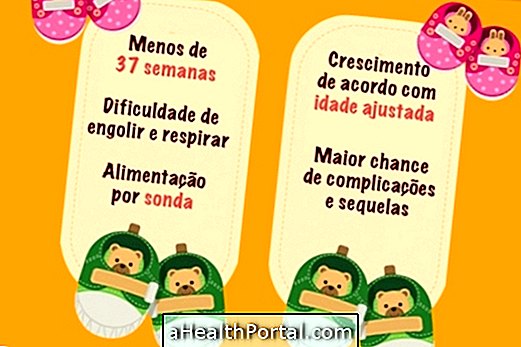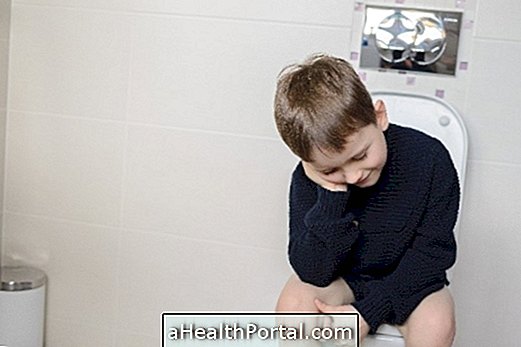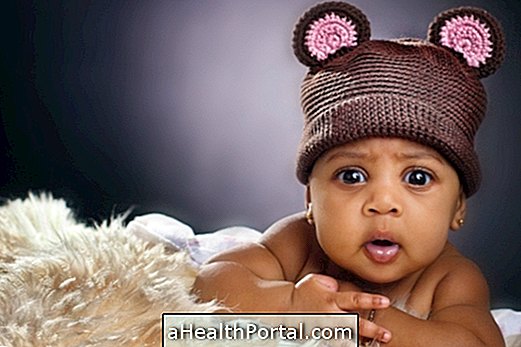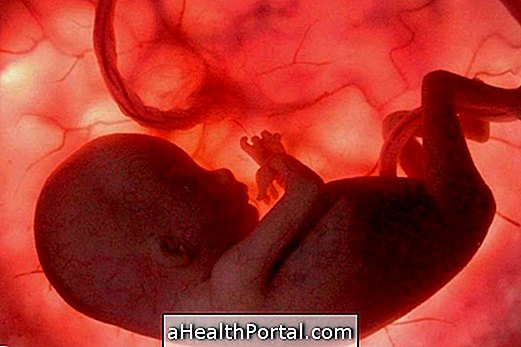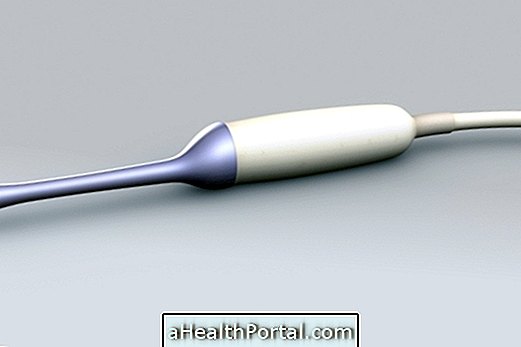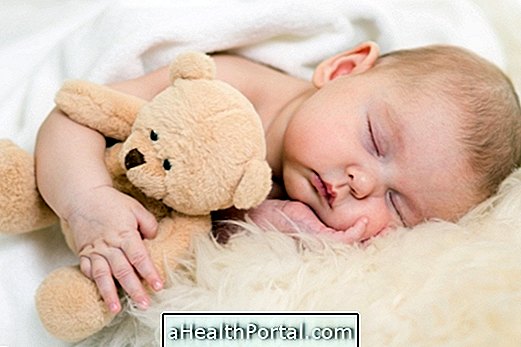To help your baby talk, include it whenever possible in family conversations, because listening to people talking also helps the baby learn many words. Although little babies can not say the words, they can understand them, so pausing between words helps them focus on the sounds of each of them contributing to their learning.
The baby's first words come at 9 months to 2 years of age and can be "mamamamama" or "papapapapa" because they are usually the words that most adults keep repeating to her. Other easy words for the baby to start talking about are grandma and titi because they are short and relate the people she is closest to.
However, some babies may start talking later, and if they are 2 and a half years old and still do not say anything other than mom and dad, the child should be taken to a speech therapist for evaluation and performed in the office and also at home so she can learn to speak other words. Also, if after 4 years the child continues to speak wrong and changing the sound of words, it may be a case of the dyslalia disorder, which also needs treatment with the speech pathologist. See more here.
Watch tips to help your baby talk in the following video:
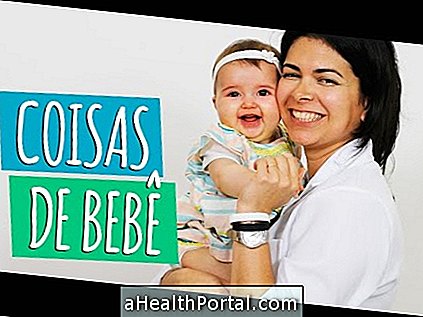
7 Tips to help the child start talking
The tips of what you can do on a day to day basis to help your baby talk are:
- Talk to the baby explaining what you are doing . Whenever you change your diaper, talk to him "now let's take off that dirty diaper" and make a sound like "hummmm smells bad" by making a gesture with his hands and nose. During the bath you can say "now I'm going to wash the baby's tummy" or "where's the baby's navel?"
- Whenever the child wants a toy and points at it, you can ask her to say the name of what she wants and not to deliver it soon, making it a joke. It is also important to speak the words correctly and in their complete form because although it is normal for the child to start speaking half words it will be even harder for her to realize her mistake if what she hears is the same. So do not call water only water, speak water and show what water is, and where it is. If she says wrong, you do not need to correct, but speak, okay, so take water, reinforcing the correct form of the word.
- Living with other children the same age and older helps the child to talk because she has the need to communicate and the other child is not likely to give her everything she shows she wants, just pointing.
- Letting the child watch educational videos and children's music clips helps in the development of children's language because the child becomes accustomed to the sound of words and tends to imitate their sound.
- Let her play with toys that emit sounds like animals, because so every time she picks up that toy she will try to reproduce the sound of the cow, the dog and the cat, for example.
- Listening to radio programs helps to increase the listening experience, making the language easier to acquire. So choose a variety of programs to listen to while playing.
- Sing for the baby, they can be children's songs or not and it does not matter if your voice is not tuned because the baby will not care. The important thing is for the baby to hear various sounds and to identify what each word means so show pictures of what each word represents helps a lot.
If even with all these stimuli the baby does not make any sound, you may be suspicious that he has any hearing problems that may be birth-defect or not. Some babies may have compromised hearing after a badly healed ear infection. Learn how to identify if your baby does not listen well.
If the child was already speaking a few words but now he stopped talking the words he already knew it is possible that something happened and it is necessary to investigate. If the child says the wrong thing, it is possible that other older children will call her a baby and if she does not like it, she may be very upset and will avoid talking. See other causes that may make it difficult for the child to communicate: Why does my child not like to talk?
